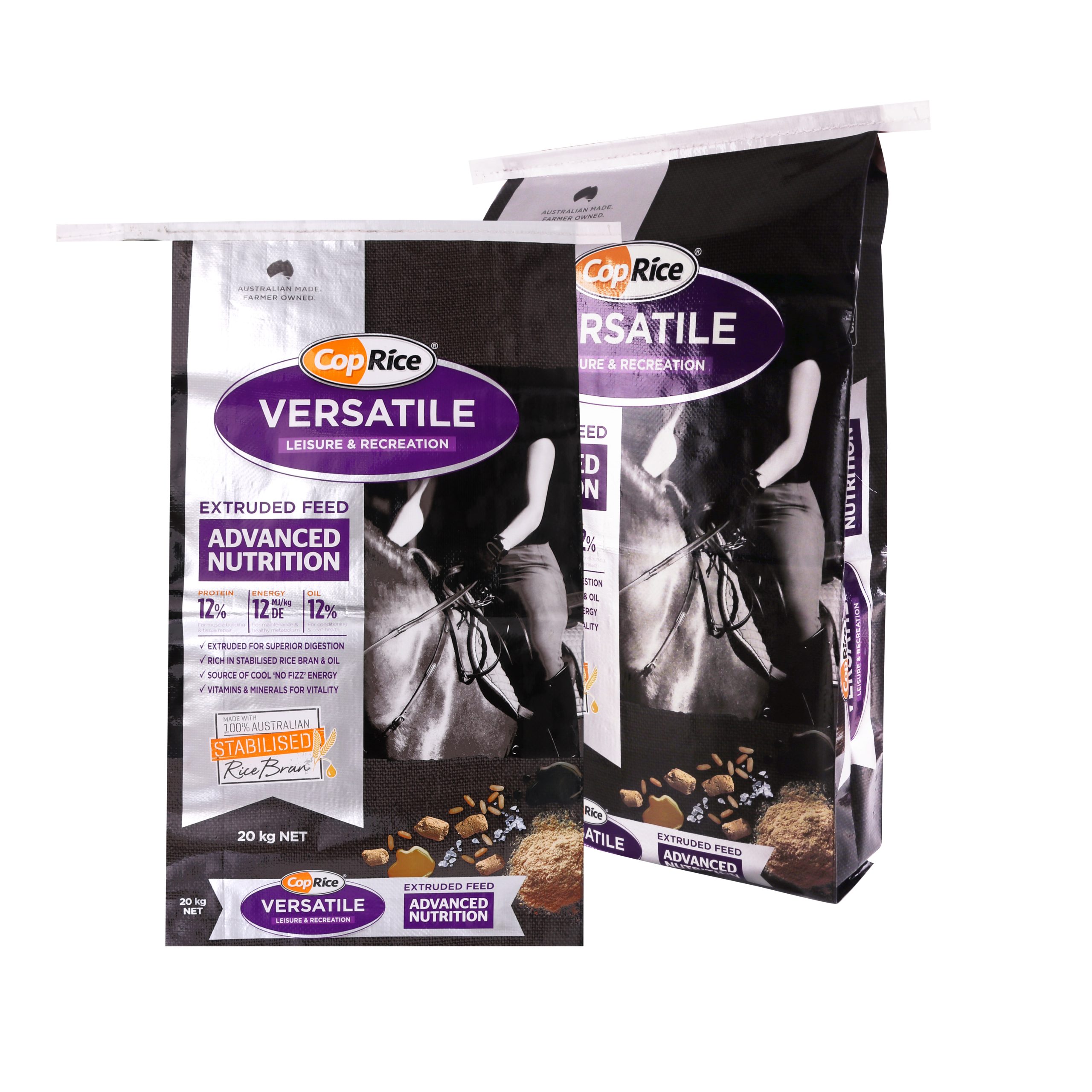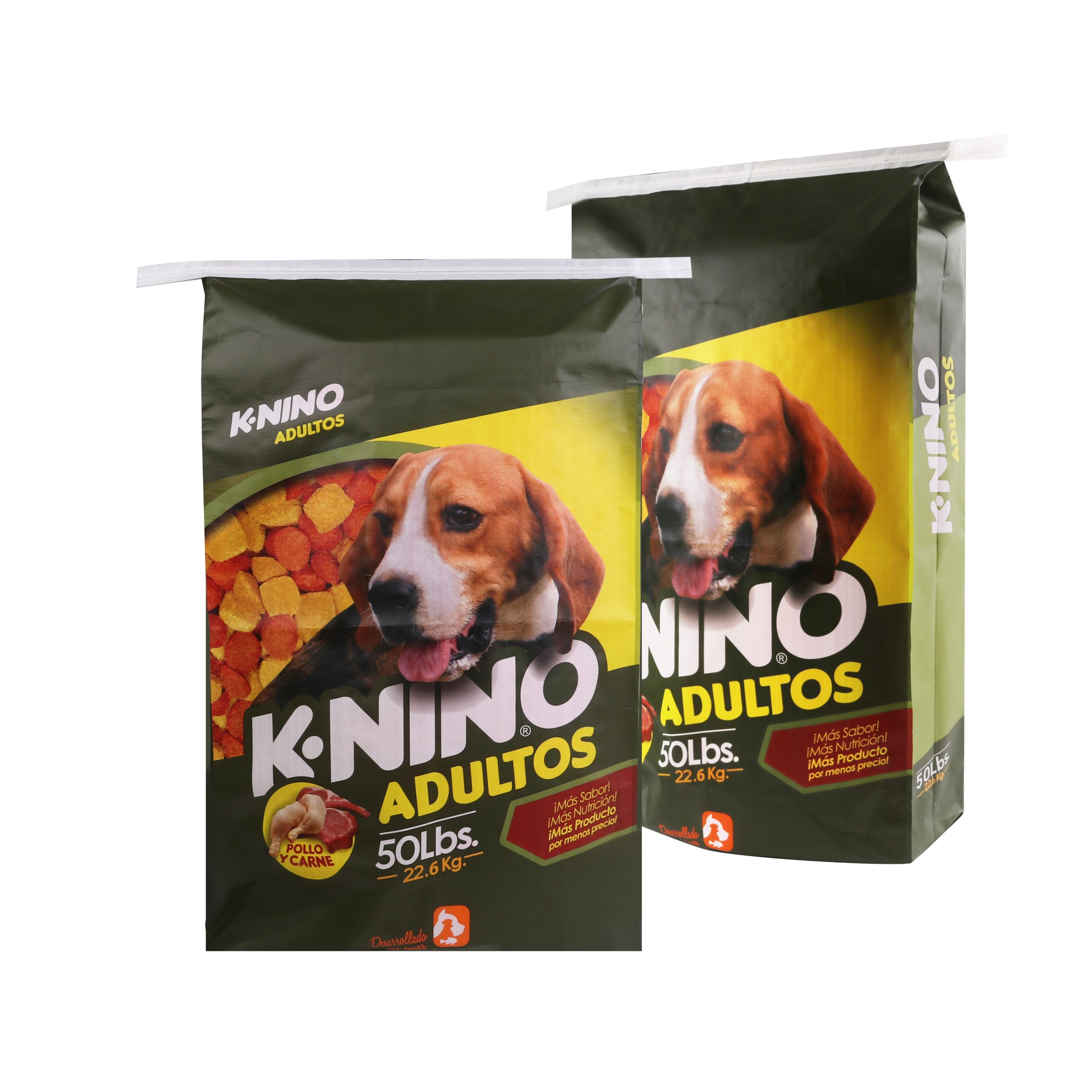Introduction
The block bottom sack has a rectangular bottom with side folds on both sides. Also known as AD*STAR bags, they are ideal for automatic filling and packaging of materials such as cement, flour, dried fruit, seeds, spices, grains, and more, making them a superior and more powerful alternative to paper bags. They are recyclable and resistant to air, thus attracting a large number of packaged products.
They are available in a variety of colors and designs, absolutely custom-made sizes, and PRIMEPAC according to your brand requirements. Block bottom pockets have a number of advantages, such as tear resistance, high transparency, and can ensure the safety of food inside. They cannot be tampered with easily because they are sealed and machined.
What is the design of the block bottom sacks?
The block bottom bag is a free-standing packing on top of the gable. It has wide side corner braces that define and support the bottom of the block through top and bottom seals. It also has a vertical fin or lap seal along the back of the bag. It is similar to pillow pockets with corner struts and simple pillow pockets but is defined by its wide corner struts and unique block bottom.
In addition to the basic design, you can customize the block bottom pocket to meet the needs of your product and brand. It can have different punch styles for sale, and features such as zippers and punch lines can be added to support easy opening and re-closing.
What are the advantages and disadvantages of the block bottom pocket?
The color sack itself is superior in nature, between the water and gas insulation performance is good, in the packaging of professional, widely used, can package food, grain, powder and other different forms of products, but also can package electronic products. It can be used to extend the shelf life and storage life of perishable commodities. Light-colored bags are of good quality and take up less space, which can be useful to save space and reduce costs during transportation and storage. Color bags, not only can do sales packaging, but transportation packaging can also be measured in large size, a wide range of applications, convenient processing, and compared with other packaging materials, color printing packaging bags of raw materials and low production costs.
Benefits of Block bottom sacks
Block bottom sacks are mainly customized processing, no spot, can only order, not suitable for the delivery time is very tight customers. Definitely a minimum quantity of an order, not suitable for a small number of customers.
Block bottom sack manufacturers only by providing more one-stop value-added services to win customers, to stand in the position of helping customers understand the market. Progress technology design through the strength of the enterprise, to help customers choose the best product design scheme, to help customers improve product quality, save costs, maximize customer interests, become your regular customers.
Block bottom sack is a kind of packing bag that can be filled quantitatively at high speed by inserting the valve port at the top or bottom of the bag into the material-filling port of the valve bag filling machine. It has a variety of different types of valve ports to choose from to accommodate a variety of different types of valve pocket fillers and packaging products. High-strength kraft paper or paper-plastic composite cloth for packaging. It has high hardness and strong impact resistance. It is filled with material and automatically contains growth cubes for easy stacking. Suitable for granular, powdery, and ultrafine powdery. Material packaging is a kind of environment-friendly packaging bag commonly used in the world, especially suitable for export-oriented enterprises.
Flat bottomed stand-up bags, also known as corner straps, could represent the next big thing in food packaging. Expect to see more of these types of creative food packaging on store shelves everywhere, as the benefits are too great to ignore. Here are some of the main advantages of this type of stand-up bag:
They use less film but hold more: it is hard to find a bigger advantage than packaging that uses less material and frees up more space for the product. Because the flat-bottomed bags use 12 percent less film but have a larger capacity, they require much less energy to make and weigh less. Both of these factors reduce costs and make them more suitable for our environment.
No outer cartons: These bags are designed to eliminate the need for outer cartons, thus reducing costs.
Replacement of inner layers: As part of the bag design, laminating of different types of materials made this possible.
They also have a resealable zipper lock that works: this apparently provides a more useful and interesting bag for dog snack packaging and many other products.
Side corner braces mean more space for printing: the extra space can be used to help promote the brand and sell the product.
Flats are safe and stable: This makes them easier to store and display on supermarket shelves.
Resistance
BOPP woven polypropylene or laminated bags offer high breakage and drop resistance. They also provide better moisture resistance than kraft paper bags. In addition, we also provide UV-resistant treatment for bags that are exposed to or stored in the sun.
Pleasant to print
Provide customers with two printing possibilities. Print directly on the laminated bag or add a layer of BOPP printing inside to protect your visual effect while providing excellent print quality.
The main feature of this product is that there can be an impression on every side of it.
Dimensional stability
With a wide variety of ranges and different carefully controlled widths, our process fits the required widths for production.
Food contact capacity
The raw materials used in our bag manufacturing process are carefully selected. Migration tests and food certificates are provided by our suppliers and our quality department.
How does the block bottom sack adapt to the current market trend?
Block bottom valve bag is widely used in chemical raw materials, organic pigments, food additives, pharmaceutical additives, building materials, etc., is suitable for the square bottom valve bag packaging industry.
Birth of valve bag: under the guidance of improving packaging efficiency and convenient transportation, the birth of the bag. The overall appearance of the bag is square, very suitable for stacking transportation; the Bottom valve port is easy to fill material, easy to seal. The new environment-friendly packaging of canning equipment can be divided into paper-plastic compound valve pockets or a multi-layer paper valve pocket. In order to facilitate filling, holes can be punched in the bag to facilitate gas discharge and prevent the bag from bursting during filling. Products that need to be protected from moisture can be wrapped with a plastic film in the middle of the paper.
Standalone bags, mixers, and other retail packaging are all the rage right now. Customers usually want the product to be unloaded directly from the pallet to the shelf. In the case of mixed packaging, they simply remove the lid from the box and they will have a variety of given products ready for the customer to choose from.
Block bottom sacks fit perfectly with these trends. Because they are stand-alone bags, they can go on shelves and can be easily removed by customers. Their shape makes them easy to store and transport. Also, they often appear in mixed packaging.
In other words, the block bottom sack is an old thing, but a good thing.
Block bottom sacks market: regional analyze
A geographic analysis of the block bottom sack market finds that the Asia-Pacific and Africa regions are likely to drive demand for them. In countries such as India and China, polypropylene block bottom sacks are used in the cement industry. In addition, China is one of the leading manufacturers of cement and has a significant impact on the dynamics of the cement packaging industry and has a significant impact on the block bottom sacks industry. As a result, demand for block bottom sacks in the Asia-Pacific region is expected to remain strong this decade.
India, the world’s second-largest cement producer after China, is expected to see major growth during this decade. Since the beginning of the cement industry in 1914, the market has evolved from shortages, restrictive legal regulations, and imports. Today’s cement industry has come a long way from a seller’s market to a buyer’s market. Packaging and sales were a challenge, which strengthened the cement capacity, which remained stable with the arrival of block bottom sacks in the market.
The block bottom sacks market is currently small but is expected to grow exponentially with the entry of new players and the expansion of small and medium enterprises in different market segments. In terms of other forms (paper, BOPP), the market is expected to grow with the rise of the upcoming FMCG industry in the Asia-Pacific region and the EMEA region.
Conclusion
Increasing urbanization and awareness of better packaging are some of the features expected to drive the growth of the global block bottom sacks market. In addition to providing excellent storage capacity for products, block bottom bags also provide economical and efficient printing and excellent display. In recent years, consumers are pursuing sustainable packaging to influence their choices, which has played a crucial role in the progress of the block bottom sacks market.


